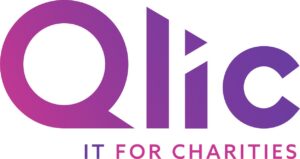Microsoft Teams for Nonprofits is packed with endless tools and effective features to help enhance your charity’s operations. Some nonprofits may struggle with managing remote teams working from home or communicating effectively with their team members due to limited resources or lack of expertise. This is where Microsoft Teams is a helping hand.
Microsoft Teams is a cloud-based communication platform that has revolutionised the way nonprofits communicate, collaborate, share information and much more. In this blog post, we’ll discuss the key benefits of Microsoft Teams for nonprofits, which are:
- Streamline Communication
- Enhanced Collaboration
- Cost Savings
- Secure Communication and Data Protection
- Integration with Microsoft 365 Tools
What is Microsoft Teams?
Microsoft Teams is a cloud-based collaborative platform within Microsoft’s comprehensive suite of applications. It is supported across a range of operating systems including Windows, Mac, iOS, Android and Linux. It is also suitable for desktops, laptops, tablets and mobile devices.
It provides nonprofits with effective communication, improved collaboration, file sharing and much more. Nonprofit organisations can use Microsoft Teams to streamline their internal operations, simplify collaboration between staff and volunteers and enhance their overall productivity. Microsoft Teams is a hub for teamwork, your team conversations, files, meetings and apps live together in a single shared workspace.

The Top 5 Benefits of Microsoft Teams for Nonprofits
Microsoft Teams can improve productivity, collaboration and team efficiency for nonprofit organisations. Let’s delve into the top 5 benefits of using Microsoft Teams for nonprofits
1. Streamline Communication
The first benefit of Microsoft Teams for nonprofits is that it’s a central platform that streamlines communication between staff and volunteers. It enables quick messaging, easy video calls, collaborative notes and much more.
Microsoft Teams video conferencing allows you to have multiple staff from the organisation on the call to discuss upcoming projects or a team catch-up. Your organisation can schedule video calls and message colleagues with ease whether you’re working in the office or remotely connected to the internet. You can also add meeting notes and agenda items to your video calls.
2. Enhanced Collaboration
Microsoft Teams promotes effective collaboration among nonprofit teams. As well as providing a central hub for communication, it also benefits collaboration between teams. Nonprofit staff and volunteers can share files and work together on projects in real time. Team members can simply share the current document they’re working on. In turn, they can then open the document and work on it collaboratively.
Effective collaboration is essential for a company’s success, and numerous tools are available to enhance it. Here is a compilation of additional collaboration tools worth exploring: The Top Collaboration Tools for Nonprofits.
3. Cost Savings
Microsoft offers discounted rates to eligible nonprofit organisations through its Microsoft 365 Nonprofit program. This allows your organisation to access Microsoft’s comprehensive suite of tools and applications at an incentivised rate. Want to know how to get your nonprofit status or if you have Microsoft nonprofit eligibility? Check out our blog How To Get Nonprofit Status on Microsoft for more details.

4. Secure Communication and Data Protection
We have previously discussed why cyber security is important for charities. In today’s digitally advanced world, cyber threats are ever-growing and adapting to cyber security solutions. That is why it is so important to only use applications that facilitate secure communication and data protection.
Microsoft Teams features include end-to-end encryption, multi-factor authentication and compliance with industry standards and regulations like GDPR. All of which are designed to enhance security and data protection. Microsoft Teams comes under the umbrella of Microsoft 365 security features meaning your nonprofit can rely on Microsoft’s security capabilities. We take a deeper look at the question: Is Microsoft 365 safe and reliable, here.
5. Integration with Microsoft 365 Tools
One of the many benefits of Microsoft 365 for charities is its seamless integration between its many applications. This makes Microsoft Teams apart of a comprehensive productivity suite maximising collaboration, team efficiency and productivity. It integrates with Microsoft apps such as SharePoint, OneDrive and Outlook. This allows for streamlined workflows, centralised document storage, and efficient collaboration.
A practical example of how Microsoft 365 can help enhance and boost productivity and collaboration is Beacon Family Services. Their IT infrastructure had grown organically, resulting in inefficiency and difficulty in onboarding new users.Our approach included pivotal steps such as migrating to Microsoft 365 SharePoint Online and Exchange Online. To learn the comprehensive process and outcomes, we invite you to explore the complete Beacon Family Services Case Study.
Leveraging Microsoft 365 and Microsoft Teams
Microsoft Teams and Microsoft 365 in general are essential tools to manage operations and enhance cooperation in nonprofit organisations. In one of our webinars Mastering the Basics of Microsoft 365 we explore how nonprofit organisations can harness the power of Microsoft 365 with a focus on the whole suite, including Microsoft Teams. Here’s a bit of what we covered:
Microsoft Teams: a walkthrough of Microsoft Teams and its specific features including chat, video conferencing, file sharing and integrations and how to enable seamless collaboration among team members.
Microsoft Bookings: the perfect feature to handle and seamlessly organise appointments and meetings with clients and staff.
Microsoft Planner for efficient project management. Discover how to use Microsoft Planner to streamline projects and improve collaboration.
Microsoft To-Do for organising and managing personal tasks and to-do lists.
OneNote: perfect for brainstorming ideas, taking and sharing notes within departments and with colleagues.
Watch the full interactive demo.
Final Thoughts on Top 5 Benefits of Microsoft Teams for Nonprofits
To conclude, Microsoft Teams is a powerful collaboration platform that offers a range of benefits for nonprofit organisations. It comes with a wide range of features such as messaging, collaboration, integration, and robust security and compliance features.
With the right strategies, charities can maximize Microsoft Teams for nonprofits to streamline their operations, improve communication, enhance collaboration, and boost productivity. Microsoft Teams is an excellent choice for helping your team members stay connected and work together more efficiently. Its wide range of tools and features can help your nonprofit achieve its mission and make a positive impact in your community.
Would you like to learn more about how Microsoft Teams could work for your charity? Contact us for a free consultation with our experts.
Would you like to learn more about how Microsoft Teams could work for your charity? Contact us for a free consultation with our experts.






